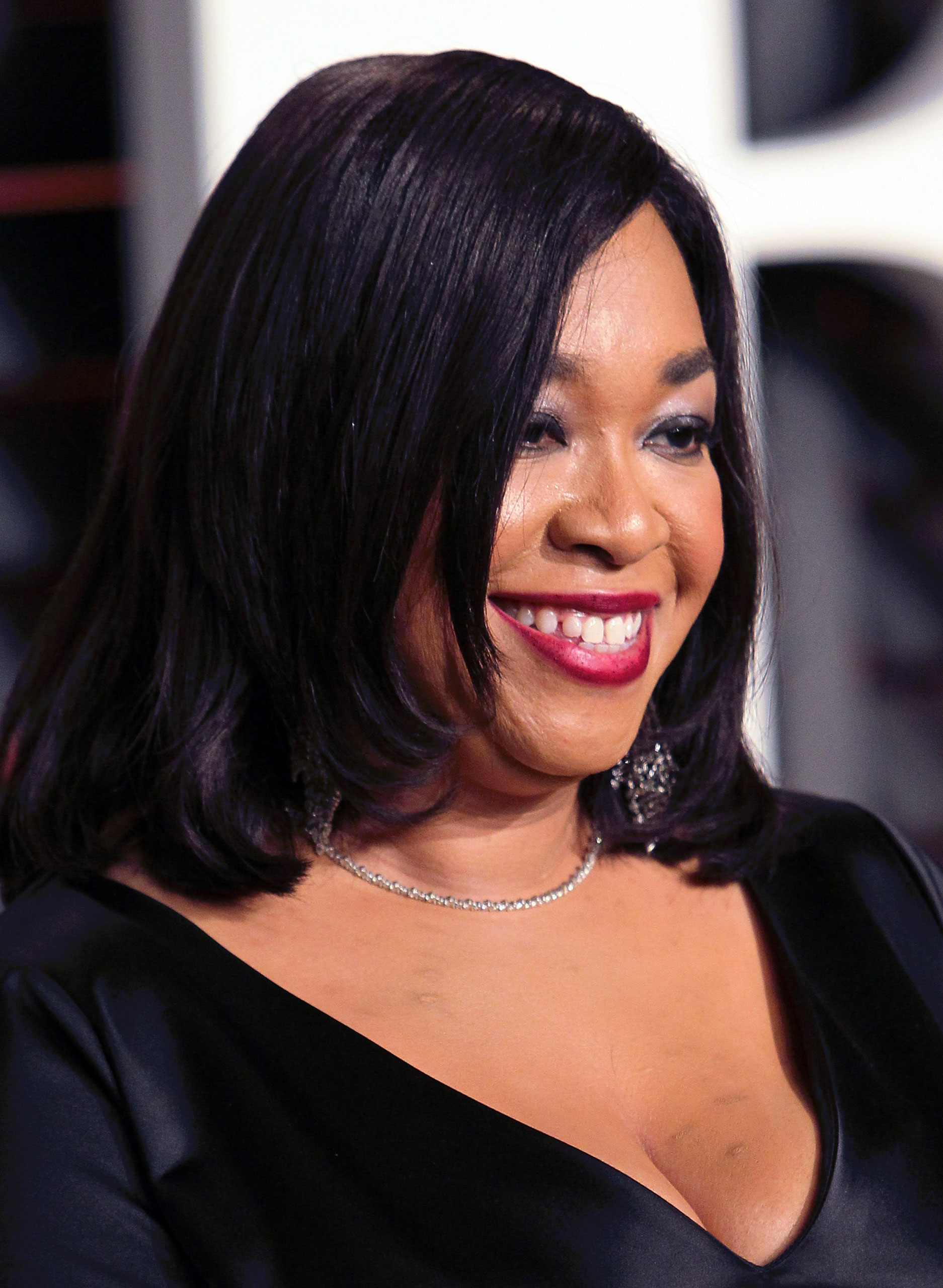
Shonda Rhimes received the Ally for Equality Award at the Human Rights Campaign’s Saturday gala and used her time onstage to talk about feeling alone and how important it is for TV to be a place people can look to when they’re feeling alone.
“You should get to turn on the TV and see your tribe,” the Grey’s Anatomy and Scandal showrunner said. “And your tribe can be any kind of person, any one you identify with, anyone who feels like you, who feels like home, who feels like truth.”
Rhimes’ ABC shows have become synonymous with diverse TV in the past years: Grey’s broke ground in 2008 when Callie, a main character, began sleeping with a woman. She went on to marry Arizona, and their relationship quickly became one central to the show. Scandal’s Cyrus, the president’s chief of staff, is openly gay, as is How to Get Away with Murder’s (another Shondaland title) Connor.
But despite the rarity of seeing relationships and characters like these on television, Rhimes doesn’t see these choices as diverse. “I really hate the word ‘diversity.’ It suggests something other,” she said. “As if there is something unusual about telling stories involving women and people of color and LGBTQ characters on TV. I have a different word: normalizing. I’m normalizing TV. I am making TV look like the world looks.”
“The goal is that everyone should get to turn on the TV and see someone who looks like them and loves like them,” she said. “And just as important, everyone should turn on the TV and see someone who doesn’t look like them and love like them. Because, perhaps then, they will learn from them. Perhaps then, they will not isolate them.”
Read the whole speech over at Medium.
More Must-Reads from TIME
- Donald Trump Is TIME's 2024 Person of the Year
- Why We Chose Trump as Person of the Year
- Is Intermittent Fasting Good or Bad for You?
- The 100 Must-Read Books of 2024
- The 20 Best Christmas TV Episodes
- Column: If Optimism Feels Ridiculous Now, Try Hope
- The Future of Climate Action Is Trade Policy
- Merle Bombardieri Is Helping People Make the Baby Decision
Contact us at letters@time.com